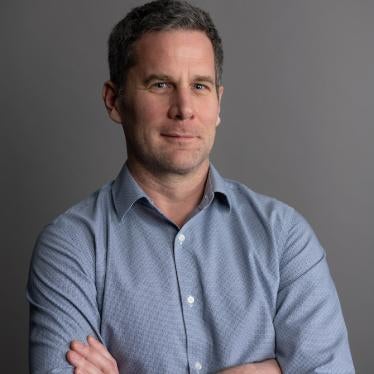Earlier this week here in Geneva, a few minutes' walk from the imposing facade of the United Nations refugee agency's headquarters, I opened my morning paper. At first glance I saw that Swiss "house rules" had changed, so that "permission" would be required to swim in local pools or go near a school, and that those who breached the rules might be confined to the house or have their "pocket money" reduced. Childhood memories of stern parental faces and having my bottom smacked flooded back. I considered calling my mum to apologise that I had not checked with her before going to the local outdoor pool the night before.
I looked again, thinking that surely these rules would apply to children, not to me, and breathed a sigh of relief. They were not for me. But they were not specifically for children either. In fact, they were for all asylum seekers living in a Swiss German town called Bremgarten, near Switzerland's other great city on a lake, Zurich. I sipped my tea, and checked I had enough pocket money to pay for my next trip to the pool. But then I thought: It is a hot summer. What if I could not go to the pool? What if I could not go to the school to pick up my child?
Incredibly enough – and bear with me here – these are the issues and questions preoccupying much of the Swiss, and increasingly international, media. Oprah Winfrey's August 8 revelations about what she claims was recent racist treatment by staff in a Zurich luxury bag store have added to the row. On August 7, Swiss newspapers reported that the head of Switzerland's migration ministry, Mario Gattiker, had announced an agreement between his ministry and the Bremgarten municipality that allows officials to limit or prohibit asylum seekers from using swimming pools, other public sports facilities, and schools.
The rules apply only to asylum seekers, because they are asylum seekers. According to Gattiker, they are also necessary to avoid "friction and resentment" between the 6,500 local residents and the dozens – not hundreds – of asylum seekers in the town that might arise if "50 asylum seekers" simultaneously try to play football or swim. The move is the latest in a problematic trend. In 2009 Swiss voters approved a measure banning mosques from having minarets. The following year they approved a measure to automatically deport any foreign nationals convicted of a 'serious' criminal offence, including benefit fraud, although it was blocked by the Swiss federal government. And in June, voters approved tightening the asylum laws, removing the ability to claim asylum at Swiss embassies and narrowing the grounds on which it can be granted, prompting criticism from the UN's refugee agency.
Gattiker says Switzerland is not breaching any laws because Swiss law does not sanction asylum seekers who "don't respect the rules of the game" or the 'Hausordnung'. Hausordnung is a Swiss-German term that refers to rules that are often found in residential buildings, such as student accommodation or blocks of flats, as well as state institutions, such as prisons and military barracks. Swiss lawyers say individuals subjected to such rules may challenge them before Switzerland's Federal Court and that soldiers have challenged such rules in front of the European Court of Human Rights.
European and other international law requires Switzerland to justify any free movement restrictions, such as not being allowed to go to a public pool or school facility, as a necessary, proportionate, and non-discriminatory measure to secure national security, public order, or public health. Any such policy may also not discriminate between Swiss citizens and foreign nationals. These rules would fail all these legal tests. The discrimination and proposed segregation does not just affect Bremgarten's 23 asylum seekers, who may soon be joined by another 125 in the town's first new federal asylum seeker reception centre, which opened on August 5.
The authorities plan to open another eight. The next will open on August 19, in the town of Alpnach, 100 kilometers south of Zurich. Alpnach's mayor has said the town might prohibit asylum seekers from accessing schools, sports facilities, a retirement centre, and an entire neighbourhood. The mayor of Menzingen, a town 50 kilometers south of Zurich where a centre is to open in 2015, says asylum seekers there will be banned from "sensitive areas" such as near schools because "asylum-seekers could meet our schoolchildren – young girls or young boys". Heaven forbid.
As the home to 75,000 registered refugees and asylum seekers, Switzerland still has the chance to avoid sullying its reputation and subjecting itself to global shame and embarrassment. Switzerland should be true to its legal obligations and the founding principles of respect for diversity and tolerance on which the UN – which Switzerland hosts – is based. The federal authorities should instruct Bremgarten not to discriminate and to respect asylum seekers' free movement rights. And Switzerland should ensure that all further agreements governing federal asylum centres do the same.
Gerry Simpson is senior refugee researcher and advocate at Human Rights Watch, based in Geneva.







